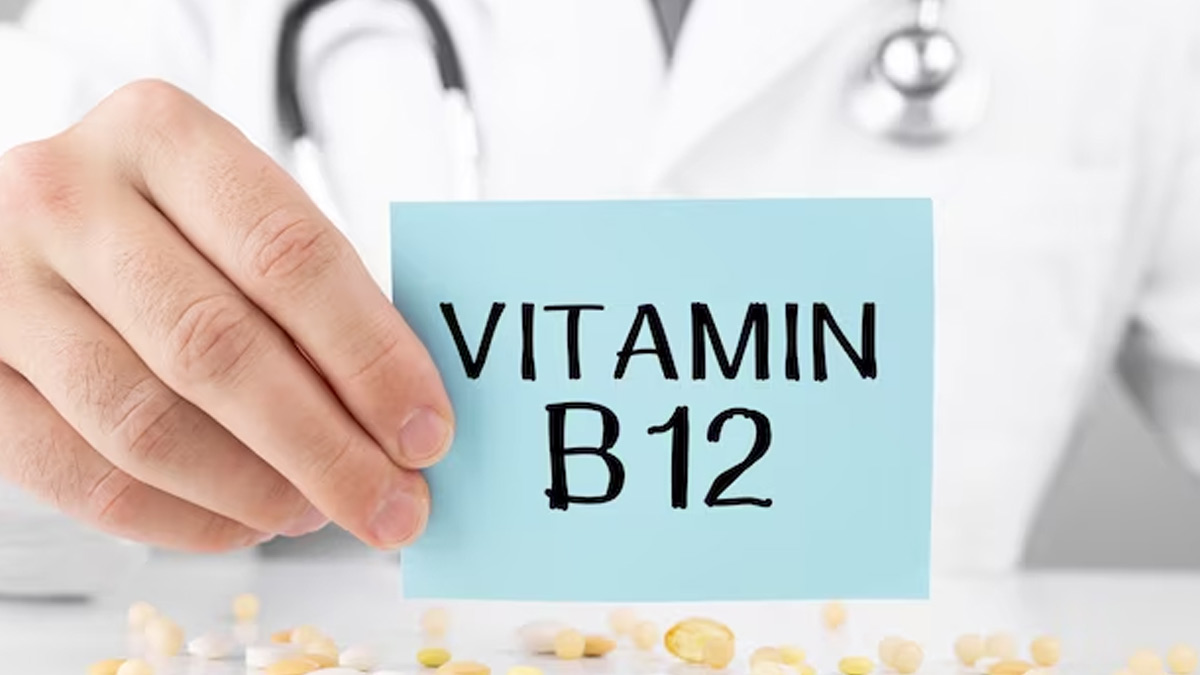
Vitamin B12, or cobalamin, is one of the most important nutrients for the body. It plays a crucial role in the functioning of the nervous system, the production of red blood cells, and the synthesis of DNA. Low levels of this vitamin can lead to several symptoms, which can be subtle or mimic other conditions. Anyone is prone to vitamin B12 deficiency, but there are certain groups of people who may be more susceptible to the illness. In an interaction with the OnlyMyHealth team, Dr Rajkumar, Senior Consultant-Internal Medicine, Indian Spinal Injuries Centre, New Delhi, sheds light on the same.
Table of Content:-
Also Read: Vitamin B12 Deficiency May Affect Your Walking Style; Here's How
What Is Vitamin B12 Deficiency?

Vitamin B12 deficiency refers to a condition characterised by low levels of vitamin B12 in the body. It can occur due to insufficient dietary intake, impaired absorption in the digestive system, or certain medical conditions.
In India, vitamin B12 deficiency is prevalent in 47% of the north Indian population, says a study published in the Indian Journal Of Endocrinology and Metabolism (IJEM), adding that people with diabetes have higher vitamin B12 levels than the general population though still have high prevalence of deficiency.
Common Symptoms Of Vitamin B12 Deficiency

Some of the common symptoms of vitamin B12 deficiency include:
- Fatigue
- Weakness
- Pale skin
- Tingling or numbness in the hands and feet
- Difficulty maintaining balance
- Mood changes
- A sore and red tongue
- Mouth ulcers
- Muscle weakness
- Vision problem
Who Is Most At Risk?
According to Dr Rajkumar, certain groups are more susceptible to vitamin B12 deficiency. These include:
- Vegetarians and vegans who exclude animal-based products from their diet (since vitamin B12 is mainly found in animal sources)
- Older adults
- Individuals with gastrointestinal disorders
- Individuals who have undergone surgeries that affect nutrient absorption
- People taking certain medications (proton pump inhibitors (PPIs), metformin, and nitrous oxide, as per Britain's National Health Services (NHS))
According to the NHS, pernicious anaemia is the most common cause of vitamin B12 deficiency in the UK. It is an autoimmune condition that affects your stomach. In India, people become more prone to vitamin B12 deficiency due to a 'largely vegetarian food habit,' as per a study published in IJEM.
How To Get Optimum Vitamin B12 Levels?

“The sufficient levels of vitamin B12 in the body are typically a blood level above 200-300 picograms per millilitre (pg/mL),” said Dr Rajkumar, adding that animal-based foods are the best way to maintain optimum levels of the nutrient. These include:
- Meat
- Fish
- Eggs
- Dairy products
For individuals following a plant-based diet, fortified foods like plant-based milks, cereals, and nutritional yeast can be good alternatives, the doctor added.
Conclusion
Vitamin B12 deficiency is a significant health concern with potential implications for both physical and neurological well-being. It can arise from various causes, including inadequate dietary intake and impaired absorption. Recognising the symptoms and addressing the deficiency through proper diagnosis and treatment is crucial for preventing long-term complications and maintaining optimal health. Adequate dietary intake, along with medical interventions when necessary, can help individuals overcome this deficiency.
Also watch this video
How we keep this article up to date:
We work with experts and keep a close eye on the latest in health and wellness. Whenever there is a new research or helpful information, we update our articles with accurate and useful advice.
Current Version